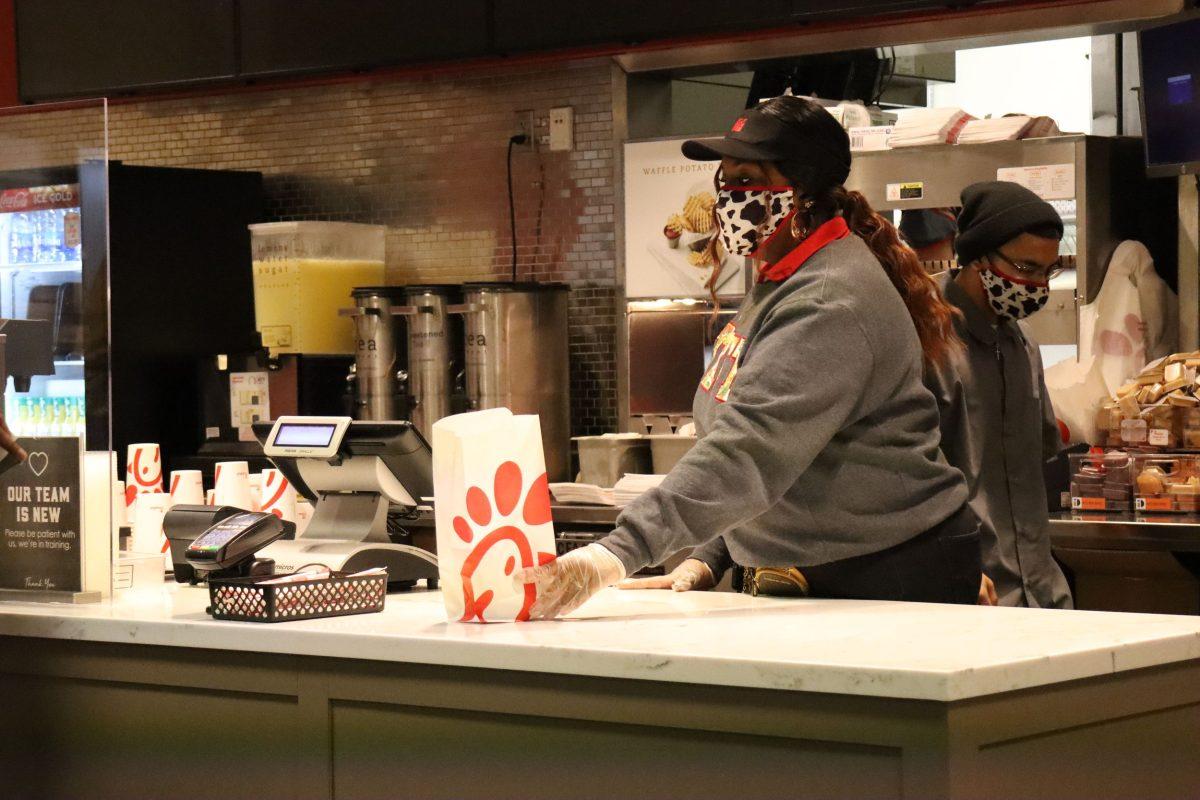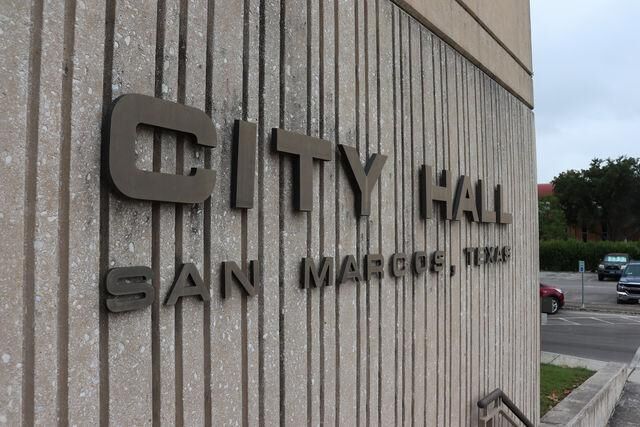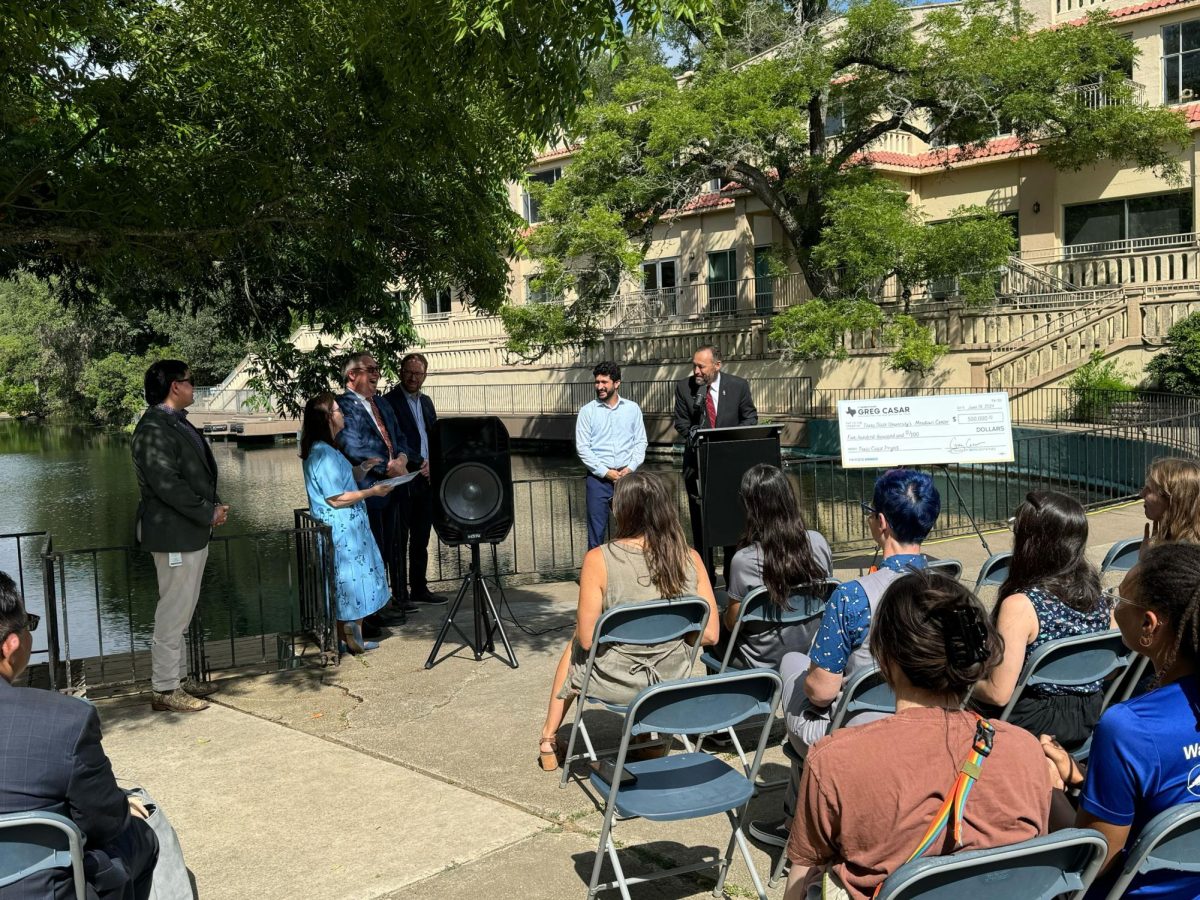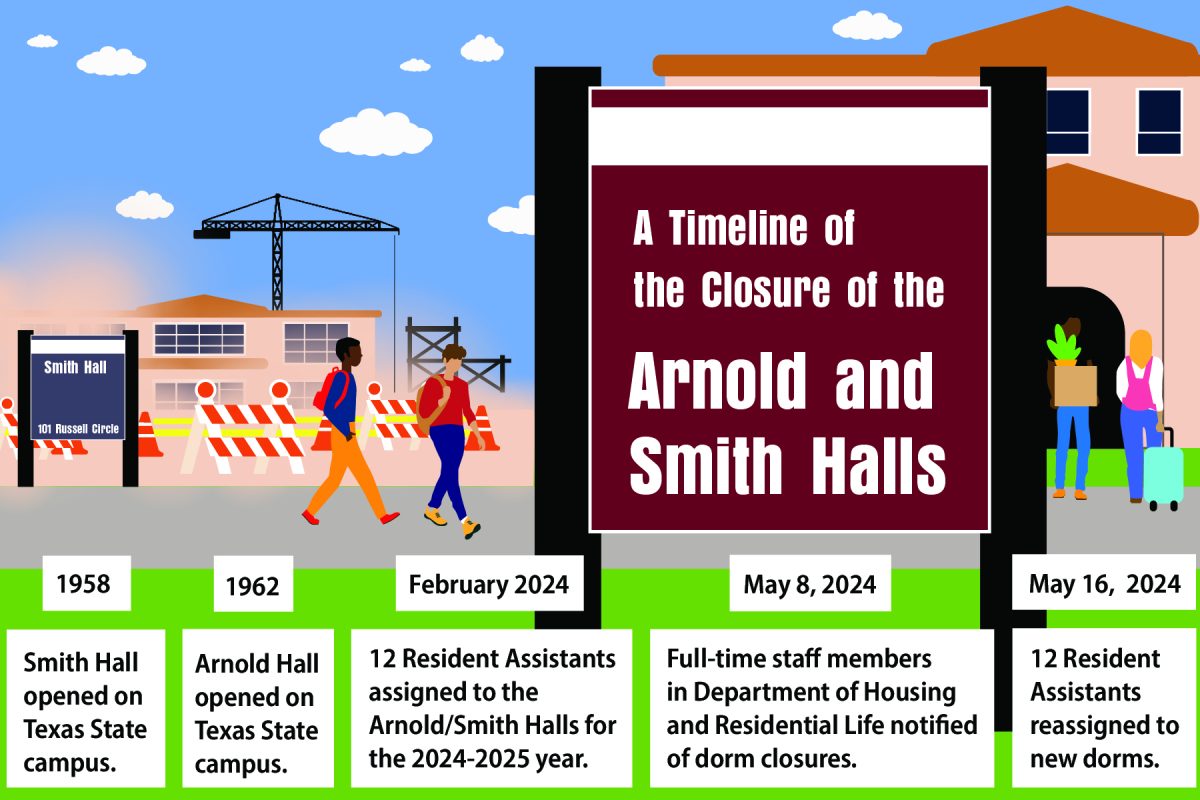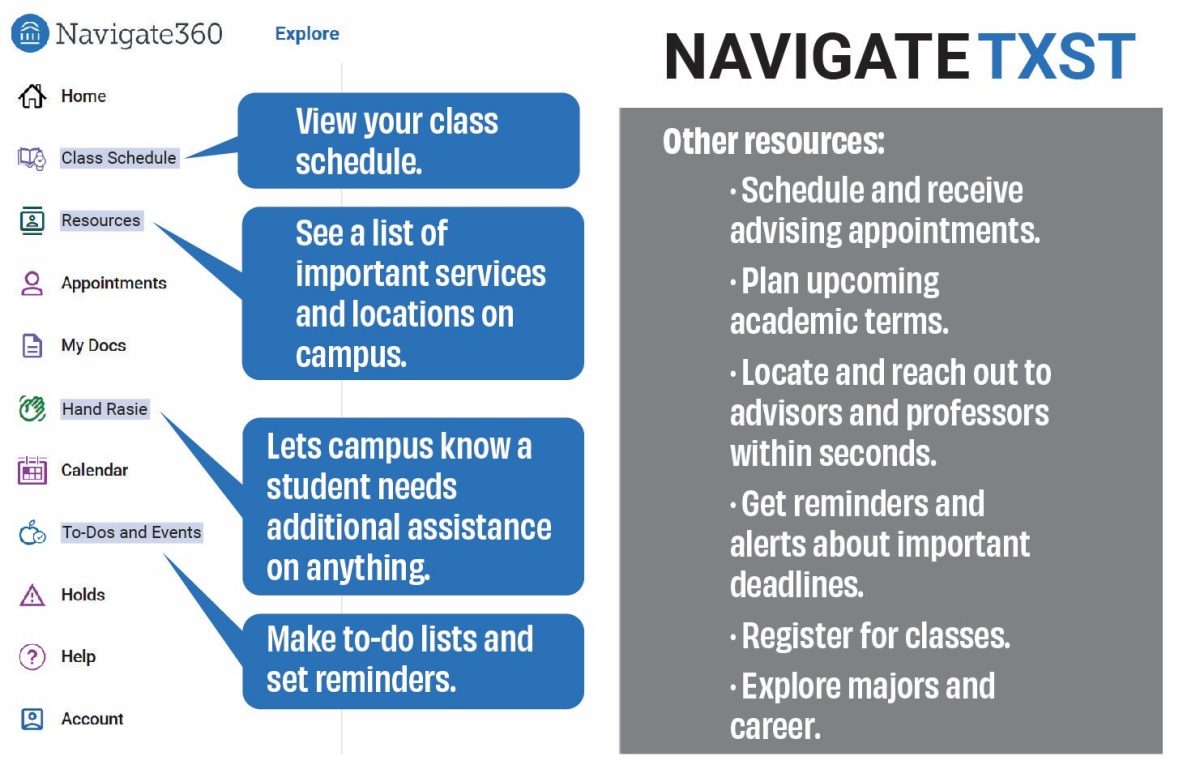Despite the university’s warnings of another possible winter storm, third-year resident assistant (RA) Ansley Haman was not at all nervous Wednesday night. She picked up the on-call phone for her dorm and started her rounds as usual. After all, this wasn’t her first rodeo.
As professors and university officials began sending out emails Wednesday night announcing the closure of most university operations due to inclement weather, Haman’s supervisor made it clear that she and her coworkers were still on the job.
“We are right next to the residents, living with the residents. If the residents have anything going on, we’re the first to know,” Haman, an English senior with a concentration in creative writing, said. “We’re right there with them, so we’re the first line of defense.”
While this year’s winter shutdown wasn’t nearly as frigid as last year’s, Haman and other RAs prepared for the worst. They doubled up for on-call rounds in case more than one person was needed and took inventory of water socks, buckets and wrenches in case of pipe bursts. Other residential halls kept bags of sand ready should the stairs leading up to their buildings ice over. They even scheduled “fire rounds” in preparation for long-term power outages.
“It’s pretty much a 24-hour thing where we split up into different rounds, just walking the building making sure that there isn’t a fire, because when the power goes out, our fire detectors don’t work. So, if a fire did happen, we would have to go find it and evacuate the building,” Haman said.
During Winter Storm Uri, Haman had to walk the building every 30 minutes from 2-5 a.m. for fire rounds. Though she hoped she wouldn’t have to do that again this year, Haman wasn’t afraid.
Just like the RAs in Haman’s residential hall, other student workers across campus needed to adjust for the freeze and potential winter storm. In an email sent out Wednesday evening, the university stated it would provide overnight lodging for critical staff.
To prepare for the implications of a winter storm, dining services took inventory to ensure it could provide food and water for those living on campus in case Chartwells trucks were unable to travel through icy conditions like last year.
Those who worked in retail areas on campus like Jones and the LBJ Student Center were transferred to dining halls during the freeze. Mason Carmona, an education freshman, took a break from the constant rush of Chick-Fil-A to help out at Harris. While the change required some adjusting, he ultimately enjoyed the new experience.
“They didn’t ask much of us, because we don’t know the dining halls,” Carmona said. “So, like, my main job was literally just walking around, waiting for the people who were cleaning up the tables, and just making sure that the floors were swept and that everything was clean and that everyone just felt like satisfied with how clean everything was.”
Because the freeze didn’t end up being as detrimental as expected, the change in location also provided an opportunity to get to know other workers on campus he didn’t usually run into. When the dining hall wasn’t busy, Carmona talked with other workers who had been moved for the freeze.
“I felt like I had so much more free time,” Carmona said. “On one hand, I liked, it because it wasn’t asking a lot; they didn’t ask us to do much. I also hated it, though, because I was like, ‘okay, what if I am supposed to be doing something? I don’t know, like the expectations of this job.'”
Even off campus, students headed to work while some businesses closed for the freeze. Kalyssa Farrer, a geography sophomore with a concentration in urban and regional planning, spent most of their Friday working at the Starbucks on Interstate 35.
The coffee shop closed Thursday when the worst of the weather hit, but decided to open back up on Friday, despite other businesses choosing to stay closed. However, those who were scheduled to work on Thursday were still paid for the time they would have worked.
While the hours were shortened, and inventory was limited, the coffee shop continued to serve its customers through the freezing temperatures on Friday. That day, the drive-thru lines extended much further than usual as people rushed to get a warm drink.
“I remember the day was really hectic and one of my co-workers like actually asked, ‘Has this happened before?’ and one of our shift leads was like, ‘No, this is new for us,'” Farrer said.
Despite this past week’s freeze being more minor than anticipated, student workers helped keep campus and other businesses running, much like they did last year.
Student workers keep businesses running through winter freeze
February 9, 2022
Texas State health science senior Niah Porcher places a customer’s bag of food on the counter, Monday, Feb. 7, 2022, at the LBJSC Chick-fil-A.
Donate to The University Star
Your donation will support the student journalists of Texas State University. Your contribution will allow us to purchase equipment and cover our annual website hosting costs.











